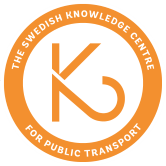Article highlighted
K2 leading European research on the 15-minute city

"This is an important European context where there is a significant demand for the knowledge that K2's researchers can contribute with," says John Hultén, director of K2.
Driving Urban Transitions (DUT) is a European research and innovation program aimed at driving the development of sustainable cities. Sweden is one of the 27 countries participating in the partnership. This year, decisions were made on 48 new projects within mobility, energy, and circular economy. Two of these projects are led by researchers affiliated with K2.
The projects coordinated by K2's researchers address various issues related to the so-called "15-minute city," a planning concept that aims to provide city residents with access to everything they need—education, work, nature, entertainment, food, and more—within a 15-minute walk or bike ride.
Fredrik Petterson-Löfstedt is leading one of the projects, which will, with a budget of approximately SEK 18.5 million, investigate conflicts in the planning of the 15-minute city.
"Conflicts are inevitable when planning for a 15-minute city. A major conflict concerns how urban space should be used. The planning concept has great potential to create climate-neutral cities, but to achieve this, it is important to have knowledge of how to manage these conflicts. Together with cities across Europe, we will test various measures and study the effects of these, as well as how conflicts are handled during the implementation," says Fredrik Petterson-Löfstedt.
Another project within the European partnership is led by K2 researcher Christina Lindkvist. The goal of the research is to develop tools, guidelines, and policy instruments for increased consideration of social and environmental justice in the planning of the 15-minute city. The project has a budget of approximately SEK 19.8 million, and the consortium includes Sweden, Norway, Poland, France, Turkey, and Spain.
"The mix of countries contributes to a broad understanding of different planning contexts and ensures the development of robust and transferable policy instruments between different national planning organisations and contexts," says Christina Lindkvist.
K2 also participates in other projects within Driving Urban Transitions:
- Capacities for Resilient and Inclusive Urban Public Transport Infrastructure and Built Environment (CARIN-PT)
- EASIER - Seamless sustainable everyday urban mobility
- COCOMO – COmpeting and COmplementary MObility solutions in urban contexts
- ACUTE – Accessibility and Connectivity knowledge hub for Urban Transformation in Europe.
